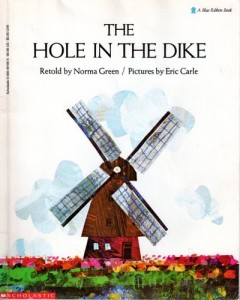News & Calendar:
- Log your reading days online or on your March planner calendar ASAP: www.RTSUtah.com. The goal is to have them in before school on Monday each week.
- Fundraiser starts this week! Check your backpack on Monday night to share the details with your family.
Main Objectives for this week:
Students will be able to…
… read and comprehend this week’s selection, “The Hole in the Dike,” focusing on the comprehension skill “Cause & Effect.”
… learn and use these new vocabulary words: trickling, flooded, rumbling, numb, dikes, and windmills.
… use quotation marks while writing when someone in the story is speaking.
… read and retell the decodable story #40: “The Bootmaker’s Daughter.”
… read and practice this week’s poem: “March”
…continue working on our Pet Rock Trading Cards and commercials.
Objectives from our “Imagine It!” Program:
Reading Literature:
- I can ask and answer questions to show I understand important details in a story.
- I can retell a legend and explain the central message in the story.
- I can describe how characters respond to events and challenges in the story.
- I can use illustrations and text to tell about the characters and setting of a story.
- I can read and understand stories by clarifying and making connections.
Reading Foundational Skills:
- I can decode one and two-syllable words with the /aw/ spelling.
- I can decode words with the suffix –ly, -y, and –ed.
Writing:
- I can strengthen my writing by revising and editing word choice in my poem.
- I can use digital tools to finish and share my work.
- In a group I can research and gather information about courage.
Speaking and Listening:
- I can follow rules for participating in discussions including listening, asking appropriate questions, building upon others comments, and staying on topic.
- I can use descriptive words when I retell a story or event that happened to me.
- I can record my Acrostic poem using a computer or other digital recorder.
- I can use visual displays to clarify ideas, thoughts, and feelings when it is appropriate.
Language:
- I can spell words using the sound /aw/ spelled augh, ough, all, and al.
- I can use glossaries, dictionaries or other resources to find the meaning of a word.
- I can discover and use new words and phrases through reading, listening, and conversation.
Spelling
- always
- call
- walk
- small
- halt
- sought
- caught
- bought
- taught
- overall
- altogether
- chalk
- talked
- naughty
- daughter
Spelling Homework this Week:
Monday– “Copy 3x”= copy the words you missed on the pretest 3 times
Tuesday-Wednesday– Choose any two:
“ABC Order”= list the spelling words in ABC order
“Syllables”= sort your words by how many syllables are in the words. For words that have more than one, place a large dot or slash in between each syllable, such as “ba/sic”
“Quiz”= have a partner quiz you on the words
Thursday– Test!
Common Core Standards we are focusing on that match this week’s objectives:
RL 2.1: Ask and answer such questions as who, what, where, when, why and how to demonstrate understanding of key details in a text. (T124-T125, T137)
RL 2.2: Recount stories, including fables and folktales from diverse cultures, and determine their central message, lesson, or moral. (T138, T140-T141)
RL 2.3: Describe how characters in a story respond to major events and challenges. (T125, T138, T140-T141)
RL 2.7: Use information gained from the illustrations and words in a print or digital text to demonstrate understanding of its characters, setting, or plot. (T123, T149, T151, T161)
RL 2.10: By the end of the year, read and comprehend literature, including stories and poetry, in the grades 2-3 text complexity band proficiently, with scaffolding as needed at the high end of the range. (T122-T125, T134-T137)
RF 2.3.b: Know spelling-sound correspondences for additional common vowel teams. (T110-T111)
RF 2.3.d: Decode words with common prefixes and suffixes. (T146-T147, T159)
W 2.5: With guidance and support from adults and peers, focus on a topic and strengthen writing as needed by revising and editing. (T168-T169)
W 2.6: With guidance and support from adults, use a variety of digital tools to produce and publish writing, including in collaboration with peers. (T176)
W 2.7: Participate in shared research and writing projects (e.g., read a number of books on a single topic to produce a report; record science observations). (T126-T127, T166-T167)
SL 2.1.a: Follow agreed-upon rules for discussions (e.g., gaining the floor in respectful ways, listening to others with care, speaking one at a time about the topics and texts under discussion. (T138)
SL 2.1.b: Build on others’ talk in conversations by linking their comments to the remarks of others. (T138)
SL 2.4: Tell a story or recount an experience with appropriate facts and relevant, descriptive details, speaking audibly in coherent sentences. (T171)
SL 2.5: Create audio recordings of stories or poems; add drawings or other visual displays to stories or recounts of experiences when appropriate to clarify ideas, thoughts, and feelings. (T176)
L 2.2.d: Generalize learned spelling patterns when writing words (e.g., cage – badge; boy—boil). (T155)
L 2.6: Use words and phrases acquired through conversations, reading and being read to, and responding to texts, including using adjectives and adverbs to describe (e.g., When other kids are happy that makes me happy). (T116-T117, T138, T140-T141)
Mystery Question!
Your student will receive a Skyhawk SOAR Ticket if he or she can answer the “Mystery Question” in his or her planner or on a piece of paper sometime before Friday:
When is one time when an author uses quotation marks when he or she is writing? (See above under “Main Objectives for this Week.”)
